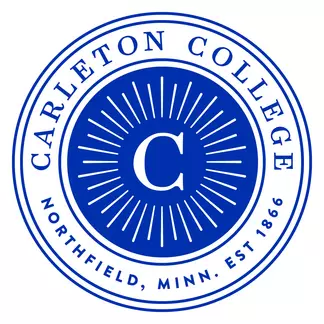
Pathways to Institutional Change
Please visit these pages again for updated information about our institutional program!
Transformation from our early grants to our current program: Early on, proposals were largely driven by the college administration and the development office, working with a few key faculty leaders. It became increasingly clear, especially in the early 2000s, that in order to achieve true institutional change, a new bottom-up approach was needed in order to transition from proposals aimed at development of STEM infrastructure and student-faculty research support into a more comprehensive program designed around intellectual themes of interest to a broad group of faculty in all departments. Our most recent HHMI grants were organized around faculty-led development of cross-cutting intellectual themes and were integrated more directly into all aspects of STEM teaching and learning at Carleton. Specific aspects of these later grants, both in terms of development of campus structures and development of campus themes, include:
- The Science Board: Current HHMI-funded programs are organized through the "science board," which consists of all science and math department chairs, and anyone else who self-identified as interested in moving the needle on the types of resources we could bring to the college to help improve teaching and research. This includes key players in the development office, institutional research, and one of the academic deans. The board helps to identify (through lengthy discussions and with people coming and going) the key curricular and research goals the faculty (and therefore the college) want to achieve as we move forward.
- Development of a strong set of programs for supporting students traditionally underrepresented in STEM (see Increasing Persistence of All Students in STEM)
- Interdisciplinary teaching and learning
- Academic Civic Engagement
- Etc.
Institutionalization of student-faculty research: In parallel with our efforts to develop a bottom-up approach to development of the intellectual themes for our grants, HHMI has encouraged Carleton to institutionalize the support for student-faculty research during summer and winter breaks through development of endowed funds—an effort in which we have made significant progress. This has allowed us to use our most recent HHMI grant to increase and enhance our curricular and co-curricular connections with STEM education and to increase our integration of academic civic engagement into STEM disciplines in meaningful ways.
Hiring of professional staff: In order to enhance and support the important themes of academic civic engagement and STEM-teaching in our most recent HHMI grant, we have included hiring professional teaching staff to direct these initiatives while engaging directly with students around these themes. These staff members have provided critical support and training for faculty on campus, as well.
Increasing faculty development efforts: The themes on which the HHMI grants have focused have been highlighted as cores for faculty and staff development efforts through winter-break workshops, curriculum development grants, and training related to research with students.
Integration of evaluation/assessment: Carleton's recent HHMI grants have been strengthened by our collaboration with the Science Education Resource Center (SERC), with their focus on evaluation and assessment of many of our programs.